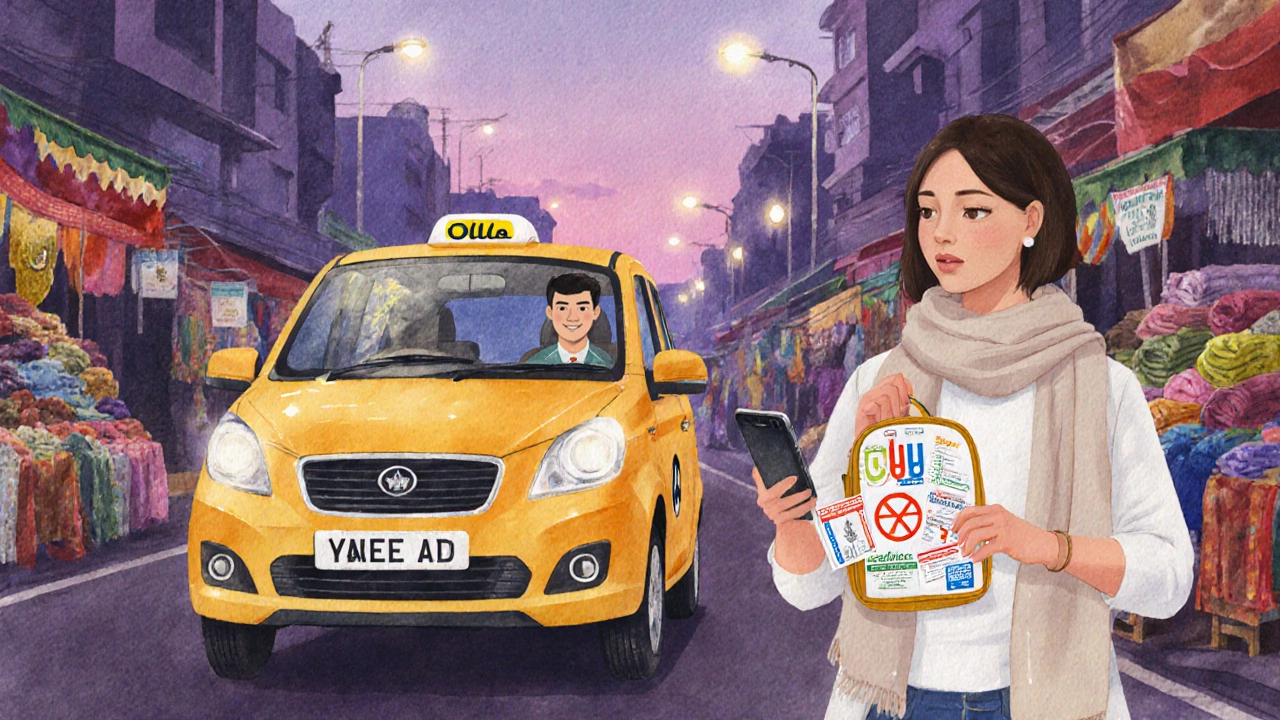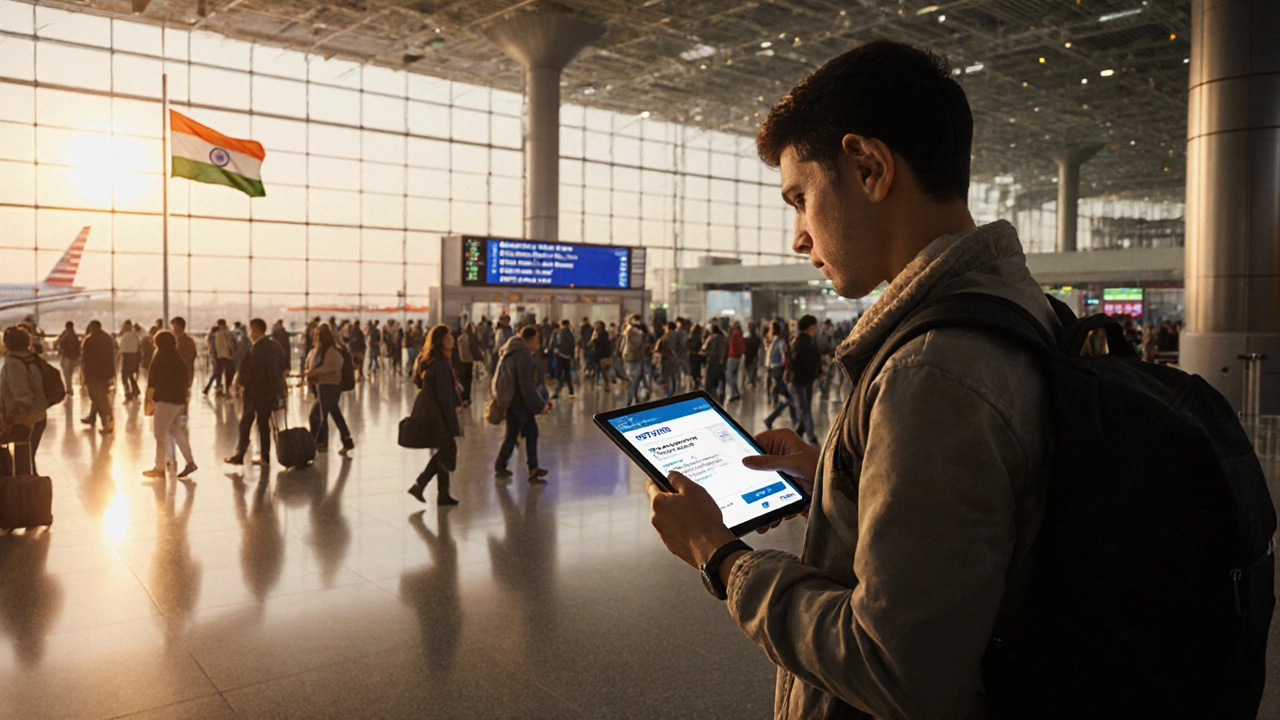India Travel Safety Risk Calculator
Personalize Your Safety Assessment
Quick Takeaways
- India’s overall travel advisory for US citizens is "Exercise Normal Precautions" as of October2025.
- Health risks are mainly food‑borne illnesses and seasonal dengue; vaccinations are recommended.
- Big cities like Delhi, Mumbai, and Jaipur have higher petty‑crime rates - stay alert and avoid isolated areas after dark.
- Carry a copy of your Indian Visa and register with the U.S. Department of State's Smart Traveler Enrollment Program (STEP) before you leave.
- Use reputable transport (app‑based cabs, government‑run trains) and keep emergency numbers handy: 112 (India) and 911 (U.S. Embassy).
Current Safety Landscape
According to the U.S. Department of State, India is listed under a "Exercise Normal Precautions" advisory for U.S. citizens. This means travel is generally possible, but visitors should stay aware of local conditions.
Key risk areas in 2025 include:
- Crime: Petty theft, pickpocketing, and occasional scams target tourists in crowded markets and transport hubs.
- Political unrest: Protests can flare up in major cities; they are usually peaceful but can disrupt traffic.
- Health: Seasonal dengue (June‑Oct) and air‑quality spikes in northern winter months.
- Natural hazards: Monsoon flooding in coastal and riverine zones; landslides in hilly regions.
Both the Indian Ministry of Home Affairs and local police maintain a visible presence in tourist zones, yet response times can vary.

Health Considerations
The Centers for Disease Control and Prevention (CDC) recommends the following vaccinations for travelers to India:
- Hepatitis A - 2‑dose series
- Typhoid - oral or injectable
- Japanese Encephalitis - for trips to rural areas during monsoon season
- COVID‑19 - up‑to‑date booster
Carry a basic medical kit (oral rehydration salts, antidiarrheal, insect repellent). In case of serious illness, major cities have international‑standard hospitals (e.g., Apollo in Delhi, Fortis in Mumbai). The World Health Organization notes that India’s doctor‑to‑population ratio is improving but can be uneven in remote areas.
Security Tips for On‑Ground Travel
- Use app‑based cabs like Uber or Ola that display driver details and route tracking.
- Avoid displaying expensive jewelry or gadgets in busy markets.
- Keep your passport, visa, and cash in a money belt; leave copies in your hotel safe.
- When using public transport, prefer AC trains or reputable bus operators; night trains are generally safe but book a sleeper cabin.
- Women travelers should consider traveling in groups after dark and use well‑lit, busy streets.
Common scams include "too‑good‑to‑be‑true" tour offers, fake police officers asking for bribes, and overcharging by unofficial taxi drivers. Policing authority often involves Indian Police who may respond in regional languages - keep a translation app ready.
Practical Pre‑Travel Checklist
- Apply for an Indian Visa (e‑visa for tourism, 30‑day stay, extendable).
- Enroll in the Smart Traveler Enrollment Program (STEP) to receive alerts.
- Purchase comprehensive travel insurance that covers medical evacuation and COVID‑19 related disruptions.
- Download useful apps: Google Maps, Ola/Uber, Indian Railways NTES, and a local emergency app like 112 India.
- Print a one‑page emergency card with:
- U.S. Embassy contact (New Delhi: +91‑11‑2419‑8000; consulates in Mumbai, Chennai, Hyderabad)
- Local emergency numbers (112 for police, 102 for ambulance)
- Your passport and visa numbers
Regional Safety Snapshot
| Region | Crime Level | Health Alerts | Travel Advisory |
|---|---|---|---|
| Delhi (National Capital Region) | Medium - frequent pickpocketing | Dengue (Jun‑Oct), Air‑quality spikes | Exercise Normal Precautions |
| Agra (Uttar Pradesh) | Low - tourist‑focused police | Seasonal flu, water‑borne illness | Exercise Normal Precautions |
| Jaipur (Rajasthan) | Low - well‑patrolled markets | Heat‑related dehydration (Apr‑Jun) | Exercise Normal Precautions |
| Leh‑Ladakh (Jammu & Kashmir) | Low - remote, limited crime | Altitude sickness, limited medical facilities | Exercise Normal Precautions; check local travel permits |
When to Rethink or Postpone Your Trip
If any of the following arise, consider delaying:
- Sharp escalation in political protests that block major highways.
- Travel health notices from the CDC indicating a new outbreak (e.g., a novel influenza strain).
- Severe weather warnings such as cyclones on the eastern coast.
In such cases, the U.S. Embassy will issue targeted alerts; keep your STEP notifications active.
Frequently Asked Questions
What is the current travel advisory level for US citizens visiting India?
As of October2025, the U.S. Department of State rates India at "Exercise Normal Precautions," meaning travel is allowed but visitors should stay aware of local conditions.
Do I need any special vaccinations before traveling to India?
The CDC recommends HepatitisA, Typhoid, Japanese Encephalitis (if traveling to rural areas during monsoon), and a current COVID‑19 booster. Check the latest CDC guidance for any updates.
What should I do if I lose my passport while in India?
Report the loss immediately to the local police and obtain a FIR (First Information Report). Then contact the nearest U.S. Embassy or Consulate for a replacement passport; you’ll need a copy of the police report and a passport‑type photo.
Are there any regions in North India I should avoid?
Most tourist hotspots are safe, but border areas in Jammu & Kashmir can have heightened security checks and occasional disruptions. Always check the latest regional advisories before venturing there.
How can I stay safe when using public transport?
Stick to reputable services - app‑based cabs, government‑run trains, and state‑licensed buses. Keep your belongings close, avoid empty train compartments at night, and carry a charged phone with offline maps.
Traveling to India can be an unforgettable experience when you blend curiosity with solid safety habits. By staying informed, preparing ahead, and using the tips above, you’ll enjoy the colors, flavors, and history of this vast country with confidence.
